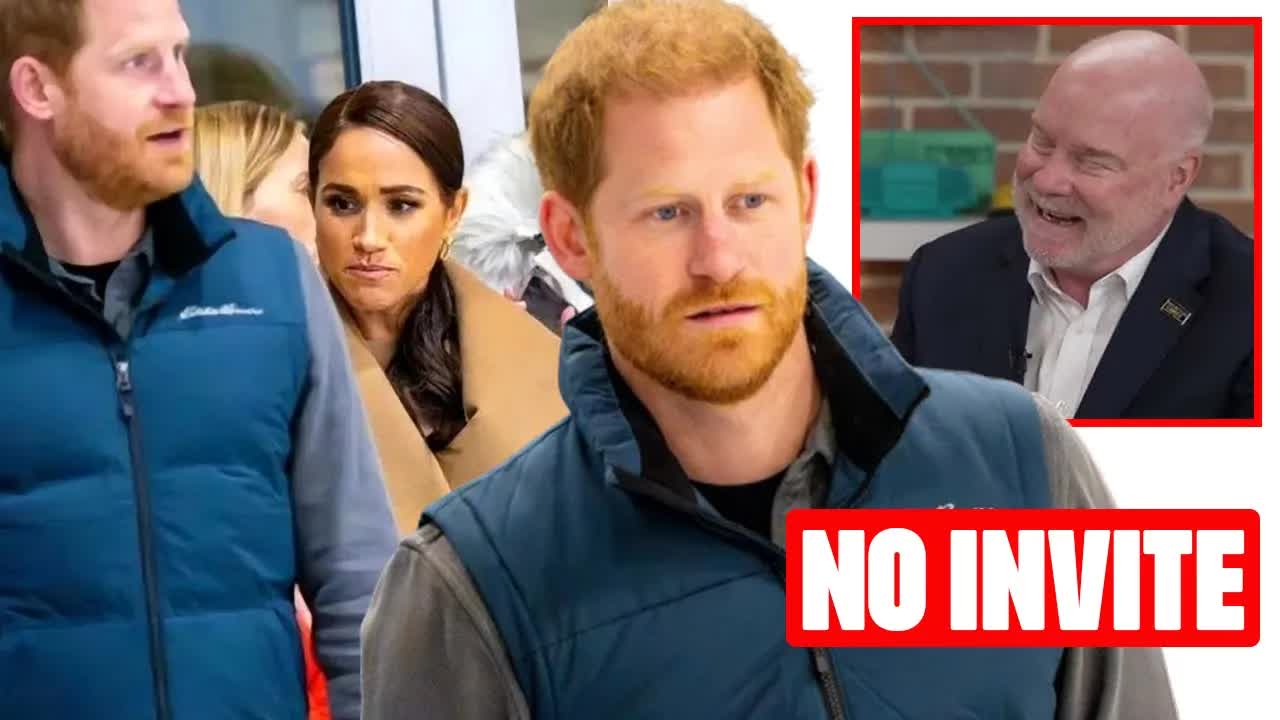In a startling turn of events, royal commentator Angela Levin has revealed that Prince Harry is set to attend the 2025 Invictus Games without his wife, Meghan Markle.
This unexpected decision, reportedly influenced by the Canadian organizers, has stirred up a whirlwind of speculation about the couple’s relationship and Meghan’s role in the event.
What could be the reason behind this surprising separation?
At the heart of the matter seems to be Meghan’s perceived demands and her fashion choices that have drawn criticism.
Her wardrobe decisions, particularly those infamous short shorts worn in front of injured soldiers, have been labeled as inappropriate by detractors.
Is it possible that these controversies have led to Harry’s choice to go solo?
Reports suggest that Meghan may have been uninvited from the event altogether.
As this scandal unfolds, a voice of concern has emerged from Canadian veteran Scott Snow.
He has raised alarms about how veterans are treated during the Invictus Games.
While he appreciates the camaraderie that the Games foster, he expresses disappointment that once the cameras are off, veterans are often left to navigate their challenges alone.
In a time when supporting those who have sacrificed so much should be a priority, it’s troubling to learn that the very event meant to honor them may be falling short of its noble mission.
With the next Invictus Games slated to take place in Vancouver this winter, Snow’s worries resonate with many veterans who have participated in previous events.
They criticize the two-tier health coverage system implemented by the Canadian organizers.
Although they acknowledge the efforts of Veteran Affairs Canada, they argue that it is fundamentally unfair for participants of the Invictus Games to receive inferior care compared to their international counterparts.
This disparity raises serious concerns about the commitment to the individuals the Games aim to uplift.
In response to these grievances, Kaned Siddiqui, a spokesperson for the Canadian Department of National Defence, stated that medical support would be available during training camps and throughout the Games.
However, this assistance appears to vanish after the event concludes, leaving many veterans without essential follow-up care.
Snow articulated this feeling of betrayal, saying, “They give you the impression that they’ve got your back and you think you’re back in the game again, but you’re not.” This sentiment underscores the frustration veterans experience as they confront the gap between the sacrifices they’ve made and the lofty ideals the Invictus Games profess to represent.
While there may be plans to address the shortcomings in coverage, questions linger about whether the organizers should prioritize genuine veteran support over funding the lavish lifestyles of Harry and Meghan.
Critics argue that the event has morphed into a platform for the couple, overshadowing the needs of the very soldiers it aims to honor.
Once a beacon of resilience and unity, the Invictus Games now risk becoming a mere facade—a masquerade of compassion that obscures the couple’s self-serving tendencies.
The implications of this shift are concerning; Harry and Meghan’s relentless self-promotion often casts a long shadow over their charitable initiatives, leading some to label them as “grief and misfortune vampires.”
By seemingly exploiting the struggles of others for personal gain, they jeopardize the authenticity of their philanthropic efforts.
This troubling reality becomes more pronounced as their actions suggest that veterans are viewed merely as props in their ongoing quest for relevance and admiration.
Amidst this backdrop of self-interest, one can only hope that veterans recognize their inherent value and refuse to be pawns in a game of celebrity and self-indulgence.
The real tragedy lies in the fact that while Harry and Meghan bask in the limelight, the veterans—who embody true bravery and sacrifice—are left to grapple with inadequate support and recognition.










